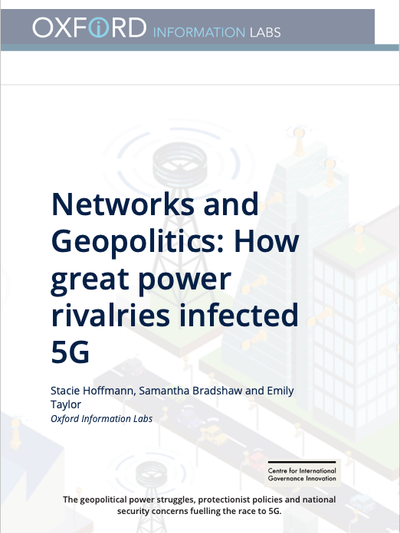Research PaperVisit our research →
Networks and Geopolitics: How great power rivalries infected 5G

Abstract
Geopolitical power struggles, protectionist policies and national security concerns are fuelling the race to 5G. At the same time, legitimate concerns are are lost in the rhetoric of trade wars, intellectual property, and sanctions violations. As a result, new alliances and national policies are emerging, which indicate a shift for the future of peace and diplomacy.
The Twitter diplomacy between the US and China has drowned out critical dialogue on the technology that will run our lives – 5G. Conflating issues of bilateral trade with local network roll out, the US has undermined its own hard lines and failed to acknowledge that countries will need to navigate unique diplomatic waters with China. At the same time, a global Chinese tech monopoly could result in a Chinese approach to human rights and Internet governance being built into our technology. How do we harness the benefits of 5G without compromising national security or global markets and avoid diplomatic tussles?
Topics:
Internet Governance and the Politics of 5G
5G and National Security
Markets, Standards, and 5G
Chinese Approaches
Western Approaches
Access Publication
Publication Document
Geopolitics_5G_Final.pdf
Research Details

- Publisher
- Oxford Information Labs
- Published
- August 22, 2019
- Last Updated
- August 5, 2022
- Pages
- 37